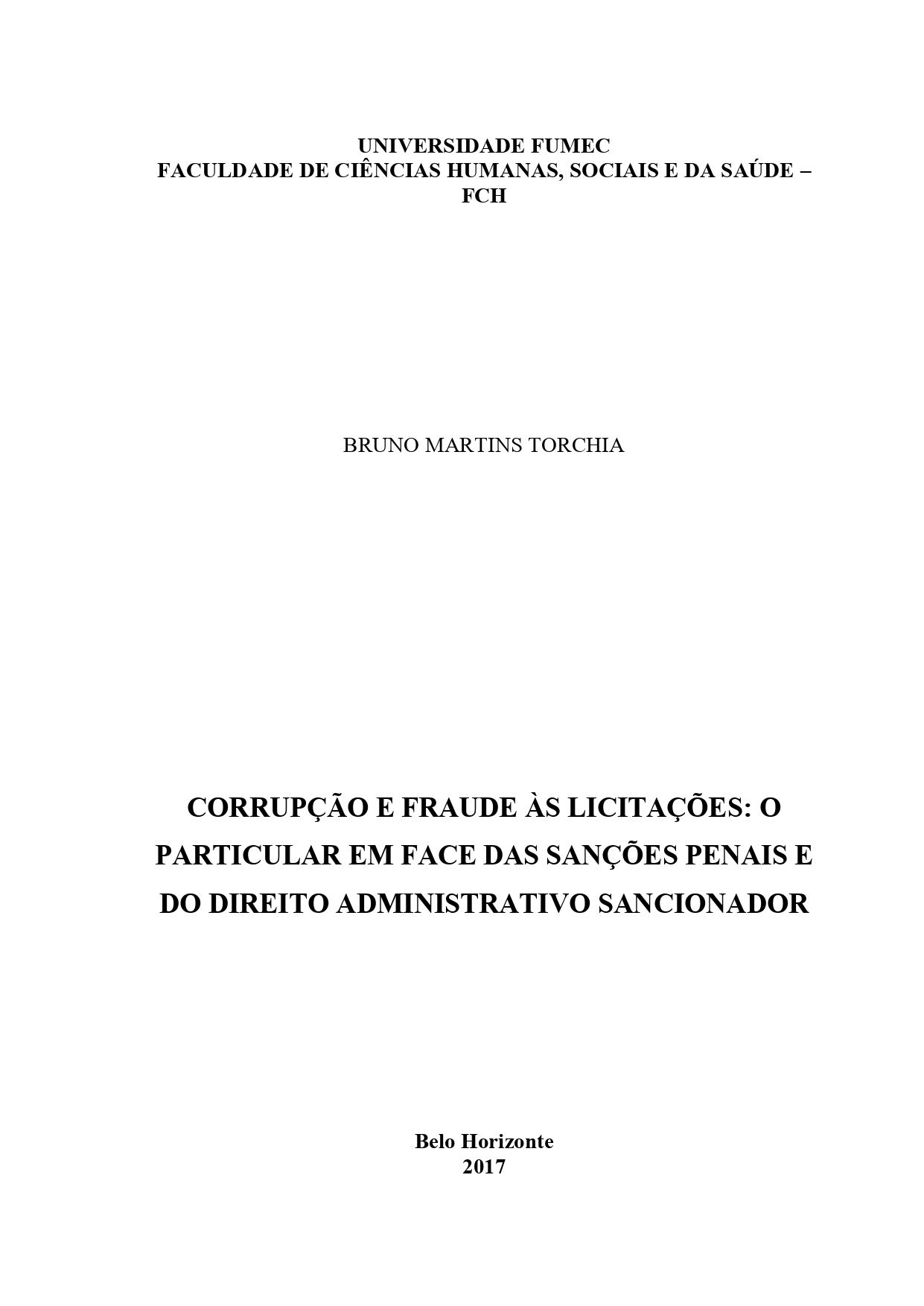Corrupção e fraude às licitações: o particular em face das sanções penais e do direito administrativo sancionador

Visualizar/
Data
2017Autor
Torchia, Bruno Martins
xmlui.mirage2.itemSummaryView.MetaData
Mostrar registro completoResumo
A aplicação de sanções pelo Estado provoca restrição dos direitos individuais dos cidadãos,
razão pela qual o poder punitivo estatal não pode ser exercido de forma arbitrária e em
descompasso com todo o espectro de normas e garantias decorrentes do Estado Democrático
de Direito. A punição aplicada na via administrativa é regulada pelo Direito Administrativo
Sancionador, o qual, diante da inexistência de diploma sistematizado, deve respeitar, sempre
que possível, as garantias estabelecidas para o processo penal. O particular que pratica um ato
lesivo de fraude à licitação estará sujeito às sanções administrativas da Lei Anticorrupção e,
consequentemente, às condutas tipificadas pela Lei Geral de Licitações e Contratos. O problema
enfrentado neste trabalho consiste em propor a harmonização dessas esferas de
responsabilização do particular, uma vez que a sanção penal para ser aplicada exige a aferição
de dolo ou culpa, enquanto a sanção administrativa da Lei Anticorrupção é de natureza objetiva,
desprezando o elemento subjetivo. Para isso, estudou-se a natureza jurídica das sanções de
fraude à licitação a partir da Lei Anticorrupção em paralelo com os crimes correlatos da Lei
Geral de Licitações, no contexto atual de enfrentamento à nova criminalidade econômica, muito
impulsionada pelo fenômeno da corrupção. Ao final, concluiu-se que a utilização
indiscriminada do Direito Administrativo Sancionador junto com o Direito Penal é uma
tendência mundial, bem como que a responsabilização objetiva da Lei Anticorrupção poderia
ser utilizada apenas para reparação do dano, não se mostrando adequada para aplicação de
punição, que deve sempre se basear na culpabilidade. The application of sanctions by the State causes limitations of the individual citizens’
rights, which is why the State’s punitive power cannot be exercised in an arbitrary and in
disarray with all norms’ spectrum and guarantees derived from the Democratic State under the
Rule of Law. The punishment applied by Administrative Rules is regulated by the Sanctionative
Administrative Law, which, due to the lack of a systematized book of Laws, must respect, as
much as possible, the guarantees established for criminal proceedings. The person who commits
an illegal act of will be subject to the Administrative Sanctions from the Anti-Corruption Lawand, in consequence, to the typified actions by the General Law of Bids and Contracts. The
problem faced in this work consists on the proposal of the harmonization of the spheres
accountability of the individual, once the criminal punishment is subjective and requires the
measurement of the will or guilt, while the administrative sanctions from the Anti-Corruption
Law has an objective nature, disregarding the subjective element. Therefor, the legal nature of
sanctions for bidding fraud from the Anti-Corruption Law was studied in tandem with the
related crimes of the General Law of Bidding, in the current context of confrontation to the new
economic criminality, much driven by the phenomenon of corruption. In the end, it is possible
to conclude that the indiscriminated use of Sanctionative Administrative Law along with
Criminal Law is a worldwide trend, as well as that the objective accountability of the AntiCorruption Law could be used only to repair the damage, not proving to be adequate for
punishment, which must always be based on guilt.
